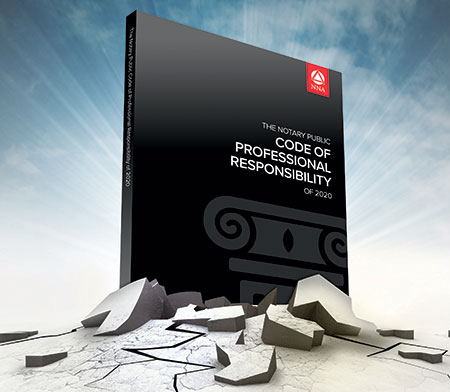
Recently, I was contacted by an analyst who was researching Notary laws across the U.S. He said that while he had an opportunity in the past to use the services of a Notary, the dive into his study of Notaries and notarization was deeper than he ever could have imagined. He expected to land in the shallow end of the pool but ended up in what to him looked like the deepest ocean. As he dove deeper, he remarked there was so much to learn and so many rules to follow.
That is how many Notaries have felt after calling the NNA Hotline for assistance in walking them through the steps to perform their first notarization. “There are so many rules to follow,” they say.
By being a Notary, you make a commitment to follow the rules. Guiding Principle IX of The Notary Public Code of Professional Responsibility of 2020 emphasizes this: “The Notary shall obey all laws and official guidelines that pertain to notarial acts and follow recognized practice standards when they are silent.” The rules Notaries must follow include laws, official guidelines, and practice standards. Let’s look at all three.
“Laws” refer mainly to state statutes. Every state has them. In Florida, for example, they are found in Chapter 117 of the Florida Statutes. In addition, many states – Florida included – have issued administrative regulations in their official administrative code which Notaries must follow. In Florida, there are regulations for in-person electronic and remote online notarization. And then there are a governor’s executive orders. For example, in 2020, many governors issued orders temporarily authorizing Notaries to perform remote notarizations in their states during the COVID-19 pandemic. Executive orders carry the force of law just like a statute or regulation.
Occasionally Notary practice is shaped by a fourth type of law, court decisions. An example of this happened just weeks ago. The Michigan Supreme Court ruled that all the governor’s executive orders issued after April 30, 2020 were invalid. Several of these orders allowed Notaries to temporarily perform remote notarizations and extended expired Notary commissions during the pandemic. When that ruling came down, any Notary with an expired commission that had been extended or who had been performing remote notarizations under one of these invalid orders had to stop performing notarizations.
So, a Notary must follow the law. “Official guidelines” are a second type of rule the Code says Notaries must follow. This is advice or guidance related to notarial conduct and practice issued or published by the state Notary commissioning or regulating official on a website, in a Notary Public handbook, or in other written or electronic form. Notaries must follow this guidance, too.
Finally, the Code calls Notaries to follow recognized “standards of professional practice,” or practice standards for short. The Code defines these as “the minimum acceptable principles, practices, and conduct expected of a Notary Public that are widely recognized as effective in ensuring the integrity, reliability, and security of notarial acts.” The Code itself is a compilation of over one hundred practice standards. An example of a practice standard is keeping a journal. Keeping a journal may be the law in some states, as it is in Arizona, California, and Missouri. But even if it is not, as a recognized minimum acceptable practice, it would be wise for every Notary to keep a journal because it ensures the integrity, reliability, and security of notarial acts.
It’s completely normal to feel overwhelmed at times by all a Notary must know to perform notarizations properly. While there are many rules to follow, the good news is that The Notary Public Code of Professional Responsibility of 2020 contains many of them all in one place. If you haven’t yet read the Code, I encourage you to take a look.
Bill Anderson is the NNA’s Vice President of Government Affairs and Drafting Coordinator for The Notary Public Code of Professional Responsibility of 2020.